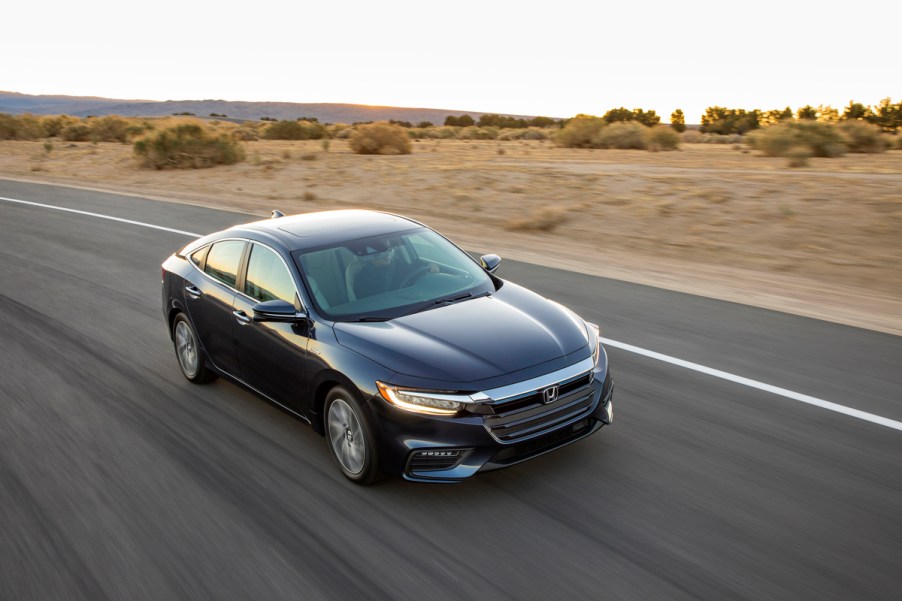
What Are the Disadvantages of Owning a Hybrid Car?
Hybrid cars have been gaining in popularity over the past two decades and there are currently about 20 different hybrid models in the market to choose from. The advantages of owning a hybrid car, as far as saving fuel and saving the planet, are pretty clear, however, there are some disadvantages that prospective buyers might overlook. Here are some of the ways that you might be at a disadvantage when buying a hybrid car.
A hybrid car is less powerful
While hybrid cars are powered by both an electric motor and a gasoline engine, they typically have less overall horsepower than most conventional cars. For example, the Honda Insight produces 151 horsepower, however, you can get a mid-level Civic for the same price and have 174 horsepower. That might not sound like much, but when you need to merge into traffic on a whim, it could make a difference.
Also, most hybrid cars utilize a continuously variable transmission (CVT), which is great for fuel economy but exudes a much slower, and droning experience as opposed to a geared transmission.

A hybrid car can be more expensive
Considering there are so many hybrid cars to currently choose from, the price ranges are all over the board. In fact, the aforementioned Honda Insight is actually one of the cheapest hybrids you can at $22,930, but that’s for the base model. If you’re looking for some of the creature comforts, like a leather interior and a better sound system, then you will be spending closer to the $30,000 range. In that case, you can find a lot more conventional gasoline cars for much less, and even less than $20,000, if that’s all your budget allows for.
Worse handling
Performance isn’t exactly any hybrid car’s strong point, however, keep in mind that they don’t handle very well. We know, most drivers aren’t looking to race their hybrid anytime soon, but capable handling can be very important in daily driving situations. Have you ever gone down a winding road to get to your destination, or perhaps, needed to swerve out of the way quickly to dodge something on the freeway? If so, then you might realize that a car’s handling capabilities could be important.

Battery replacement
If you happen to buy a new hybrid car, then you can rest assured that it will come with an 8- or 10-year/100,000-mile warranty on the hybrid parts, which means you’re covered. However, if you’re planning to keep it forever, or are planning to buy an older hybrid, then you might have to worry about getting the battery replaced eventually. Just note that it can cost $6,000 or more at a dealership, but much less if you go with an independent shop or do it yourself. Either way, it’s something to consider.

The pros can still outweigh the cons
We know that reasons like performance, handling, and even eventual battery replacement aren’t necessarily reasons to stay away from buying a hybrid car altogether, however, they could be important to some consumers. If you can overlook these points, then you’ll be treated to better gas mileage, a comfortable ride, and best of all, you’ll be doing your part in saving the planet.



